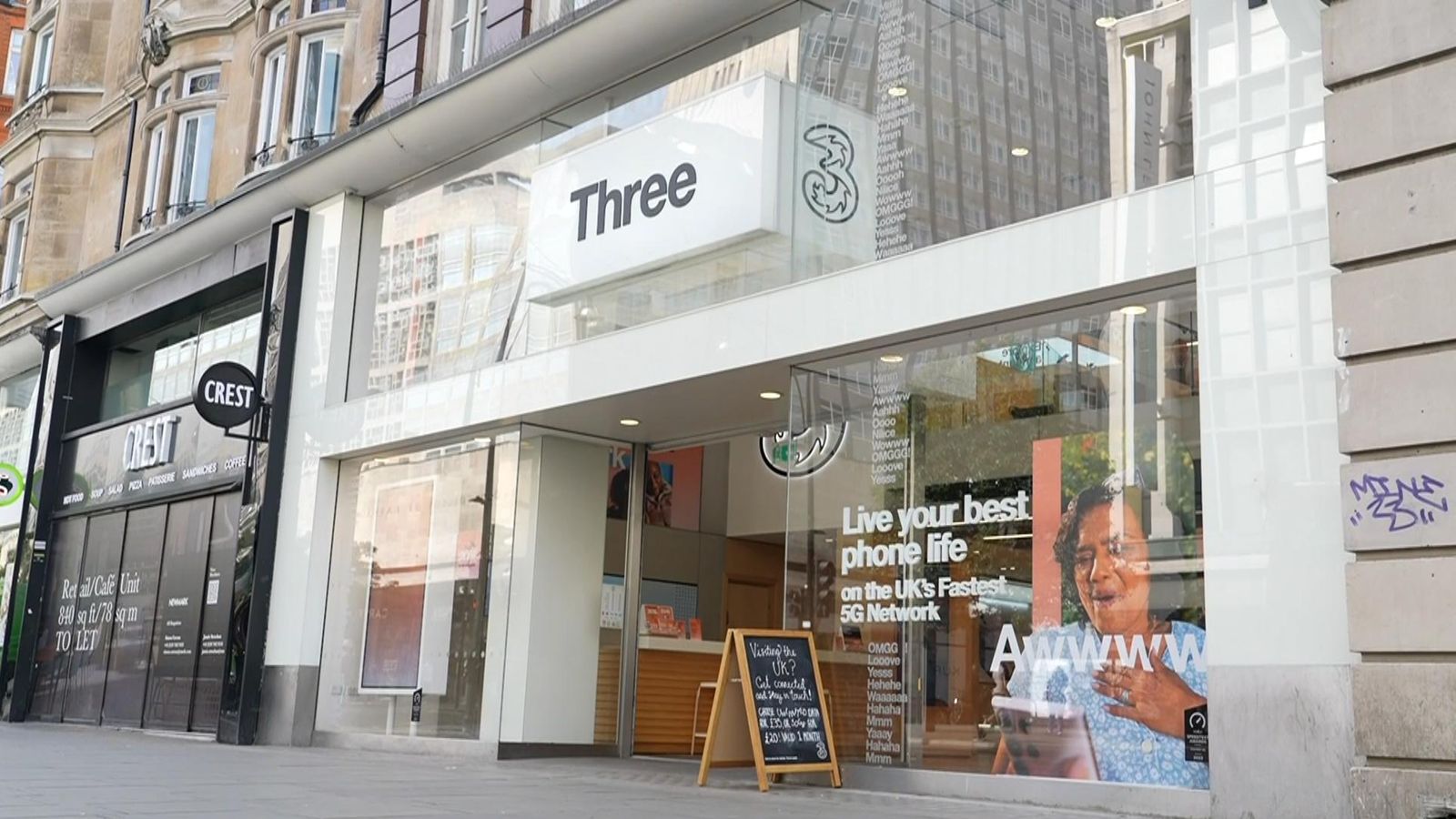Mobile phone retailers are preparing for a spike in organised robberies when Apple’s new iPhone 15 goes on sale next week.
Thefts involving a group of people targeting a shop for goods are sometimes referred to as “steaming” and there were more than 300 incidents of this in telecoms stores last year.
Half of these incidents took place in the last three months of 2022, after an iPhone launch, according to data published by the Crime Communications Strategy Group (CCSG).
Three UK are hoping to combat the rise in robberies by rolling out watermarking technology, in partnership with Selecta DNA and The National Business Crime Centre.
This involves unique codes being placed on high-value products, making them easier for police to track if they are stolen.
Mark Ward, CCSG’s chair, says the group are “making no secret of the fact we are marking phones”.
“It’s a deterrent,” he continues. “We are going to have signs in our stores and we are hoping that will deter people taking them in the first place.”
Russell Brand accused of rape, sexual assault and emotional abuse – allegations he denies
Russell Brand tells fans ‘there are things he cannot discuss’ as he plays comedy show after sexual assault claims
Victim of serial fraudster Mark Acklom demands £750k back from bank he used
Apple’s iPhone 15 will go on sale on Friday 22 September. The most expensive version comes with a hefty £1,199 price tag.
Please use Chrome browser for a more accessible video player
Joel Thompson, store manager for Three UK’s flagship store on London’s Oxford Circus, was one of the staff members at a training session on the watermarking technology.
“The worst experience I had was when about four people came into the store, and you could see them really aggressively taking the phones,” he says, adding that this incident took place while customers were browsing. “They also told the staff to step back and don’t get involved.”
Mr Thompson adds that in the eight years he’s worked for Three UK, “the culture has changed” and thieves have become “more aggressive”.
He also questions if the rise in these crimes could be linked to the cost of living crisis.
Paul Fagg, a police inspector working for the National Business Crime Centre, says: “You have got a group of sometimes grown adults running into a store, threatening and intimidating [people].
“We know first-hand the effect that leaves on the victim and staff in that store. So we are very much trying to change the message and the mentality around that business crime is [a] victimless crime.”
Three UK staff have been advised to step back if a steaming incident occurs but business owners who run smaller, independent phone shops cannot afford the huge losses which often occur as a result of these robberies.
Muhammad Fahad, 40, experienced this for himself when men armed with hammers entered his Fone City shop in St Albans earlier this year.
Mr Fahad tried to fight one of the men off. He says: “I just pushed him then he took a hammer from his arm or something. Then he hammered on my hand so then I told myself, ‘just let them be’.”
Five months on, he is still dealing with the consequences. “Basically they took everything, everything. More than £10,000 [worth of products],” he says.
“I don’t know how long it’s going to take me to recover from that pain, emotionally and financially.”
He is calling for more help from police to protect small businesses like his.







